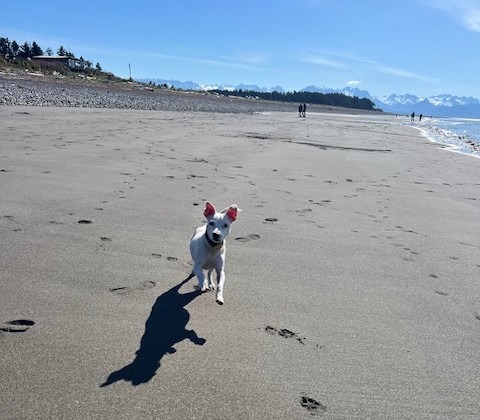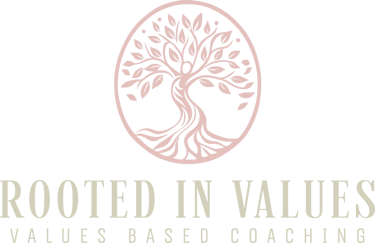From Alaska to Whidbey: A Six-Week Journey Home
VALUESFAMILY
Loreen Murphy
9/17/20257 min read


After years of calling Alaska home, the time had come to leave. What we thought would be a straightforward drive to the Pacific Northwest turned into an epic six-week odyssey filled with unexpected detours, breathtaking discoveries, and the kind of memories that only come from embracing the unknown on the open road.
The Great Departure
Packing up a life in Alaska isn't like moving anywhere else. There's no casual weekend trip to scope out your new neighborhood—you're committing to a journey that will take you through some of the most remote and stunning landscapes on the continent. As we loaded our belongings and our faithful companion Maynard into the truck, we knew we were in for an adventure, but we had no idea just how transformative the next six weeks would be.
The initial plan was simple: drive south through Canada, take our time to see the sights, and eventually arrive at my parents' property on Whidbey Island in Washington. What we got instead was a masterclass in flexibility, resilience, and the art of finding beauty in unexpected places.
Crisis in Jasper
Three weeks into our journey, we found ourselves in the town of Jasper, Alberta—or what was left of it. The community was still reeling from the devastating forest fire that had swept through the area the previous year, leaving scars on both the landscape and the hearts of its residents. The town felt like it was holding its breath, caught between mourning what was lost and cautiously rebuilding for the future.
It was here that Maynard, our beloved four-legged travel companion, suddenly fell ill. In a moment that every pet owner dreads, we found ourselves desperately searching for veterinary care in a town that was still piecing itself back together. The main veterinary clinic had been destroyed in the fire, but we were directed to a construction trailer on the outskirts of town where a local vet had set up a temporary practice.
Walking into that trailer was surreal. Medical equipment was cramped into a space barely larger than a large RV, and you could hear the sounds of reconstruction echoing from nearby lots. But inside, we found something remarkable—a veterinary staff who embodied the resilient spirit of Jasper itself. They examined Maynard with the same care and professionalism she would have provided in a state-of-the-art facility.
"We make do with what we have," they said with a smile as looked at Maynard's swollen face. "This community has taught me that healing isn't about having perfect conditions—it's about having the will to help."
After several anxious hours, Maynard was diagnosed with an infection, likely brought on by the stress of travel and perhaps something he'd gotten into along the way. With medication and a cone of shame, he would be fine, but it meant extending our stay in Jasper for several days to monitor his recovery.
Finding Beauty in Resilience
Those extra days in Jasper turned out to be a gift. As Maynard slowly regained his strength, we had the chance to witness firsthand the incredible resilience of both nature and humanity. Green shoots were already pushing through the charred earth, and the community was coming together in ways that reminded us why small towns hold such a special place in the human experience.
Wine Country Wanderings
Once Maynard was back to his usual energetic self, we continued our journey south, making our way through the wine regions of British Columbia and Washington. The Okanagan Valley welcomed us with rolling hills covered in vineyards and the kind of azure lake views that belong on postcards.
We spent lazy afternoons at small family wineries, learning about terroir from passionate vintners who seemed genuinely thrilled to share their craft with travelers. At Summerhill Pyramid Winery, we tasted wine that had been aged in underground caves, while the owner explained how the property's unique energy was supposed to enhance the aging process. Whether or not you believed in the metaphysics, there was no denying the wine was exceptional.
Lake Chelan proved equally enchanting, though in a completely different way. Where the Okanagan felt European and established, Chelan had a more rugged, pioneering spirit. We stayed at a Harvest Host in the middle of a vineyard. Their property overlooked the lake, and we spent our evening drinking Rose on their deck, watching the sunset gleam off of the water, and painted the surrounding mountains in shades of gold and pink.
The wine tastings here felt more intimate, more experimental. Many of the wineries were family operations where the person pouring your glass had also picked the grapes, managed the fermentation, and probably built some of the equipment by hand. There's something deeply satisfying about tasting wine while standing in the very vineyard where the grapes grew, especially when the winemaker is eager to tell you about the challenges of that particular vintage or their hopes for the vines they just planted.
The Revelation of Liard Hot Springs
But the true revelation of our journey came at Liard Hot Springs in northern British Columbia. We had heard about these natural hot springs, but nothing could have prepared us for the otherworldly experience that awaited us.
The springs are accessed via a wooden boardwalk that winds through a boreal forest so pristine it feels primordial. Ancient spruces tower overhead, their branches creating a natural cathedral, while the air itself seems to shimmer with moisture and an almost mystical energy. The sound of our footsteps on the wooden planks was muffled by the forest's embrace, and with each step, the anticipation built.
Then, suddenly, the trees opened up to reveal pools of impossibly clear, turquoise water steaming gently in the wilderness air. The contrast was breathtaking—this tropical-looking oasis in the heart of the northern Canadian wilderness, surrounded by forest that looked like it had been untouched since the last ice age.
Slipping into the 108-degree water felt like entering another world entirely. The mineral-rich springs seemed to wash away not just the dust and fatigue of weeks on the road, but also the stress and uncertainty that had accompanied our major life transition. Floating in those sacred waters, surrounded by ancient forest and the enormous sky overhead, we felt profoundly connected to something larger than ourselves.
We never could have imagined the beauty of that place—the way the light filtered through the steam, creating an almost ethereal glow; the sense of being held by the earth itself; the profound quiet that made every whispered conversation feel like a secret shared with the wilderness. It was one of those moments that reminds you why travel isn't just about getting from point A to point B, but about opening yourself up to experiences that can fundamentally shift your perspective.
Arriving at Whidbey: The Final Chapter Begins
After nearly six weeks on the road, we finally pulled into my parents' driveway on Whidbey Island. The property, with its sweeping views of Puget Sound and the Olympic Mountains beyond, should have felt like a triumphant arrival. And in many ways, it did. But anyone who has ever moved back to family property as an adult knows that coming home is rarely as simple as it appears.
The first few days were a delicate dance of reestablishing relationships, navigating old dynamics, and finding ways to honor both our independence and our gratitude for their generosity. My parents had prepared the house with touching attention to detail—fresh flowers, a stocked refrigerator, and Maynard's favorite treats waiting on the counter. But beneath the warm welcome, we all sensed the adjustment period ahead.
There were the inevitable conversations about plans and timelines, the gentle probing about our decision to leave Alaska, and the unspoken questions about how long this arrangement might last. Family dynamics that had been comfortably distant during our Alaska years suddenly required daily navigation. What shall we make for dinner? Where should we park? How do we maintain our privacy while still being present and appreciative?
But there were also unexpected gifts in this transition. Evening walks along the island's beaches make for a very happy dog. Shared meals that turned into hours-long conversations about everything and nothing. The peculiar comfort of being surrounded by people who have known you your entire life, even when that familiarity sometimes feels overwhelming.
The Road's Lessons
Looking back on those six weeks, the journey taught us things we never expected to learn. We discovered that some of the most profound experiences come not from the destinations we plan for, but from the detours we never saw coming. Maynard's health scare in Jasper, which felt like a crisis at the time, gave us the gift of witnessing human resilience and community spirit in its purest form.
The wine country wanderings reminded us to slow down and savor not just the wine, but the stories and passion behind it. Every vineyard visit became a lesson in following your dreams, in the patience required to nurture something beautiful, and in the joy of sharing your life's work with strangers who become, however briefly, friends.
And Liard Hot Springs—that magical, impossible place—taught us that the world still holds wonders we can't imagine until we encounter them firsthand. It reminded us to stay open to beauty, to allow ourselves to be surprised by the planet we call home.
Now, as we settle into our new chapter on Whidbey Island, we carry these lessons with us. The road trip is over, but the journey of building a new life is just beginning. We've learned that home isn't just a place—it's a feeling of belonging that can be found in a construction trailer in fire-ravaged Jasper, in a family winery overlooking an azure lake, in ancient hot springs hidden in the boreal forest, and yes, even in the sometimes complicated embrace of family.
The six weeks that stretched between our old life and our new one weren't just a bridge—they were a transformation. And as we watch the sun set over Puget Sound from my parents' deck, Maynard contentedly snoring at our feet, we know that we're not the same people who left Alaska all those weeks ago. We're people who have been shaped by the road, by unexpected kindnesses, by natural wonders, and by the peculiar grace that comes from being willing to say yes to the unknown.
The journey may be over, but the adventure—as we're learning—is just beginning.
